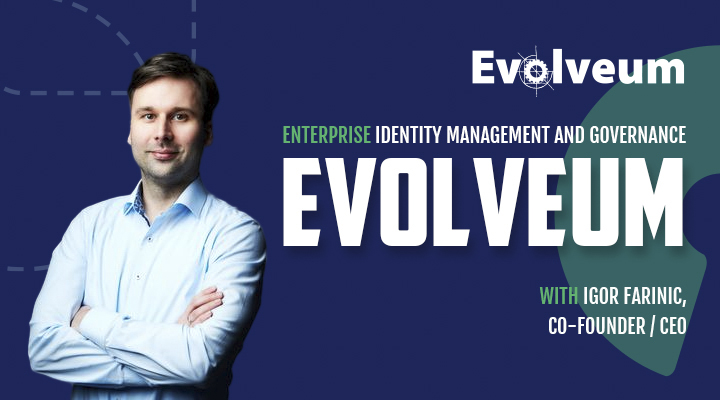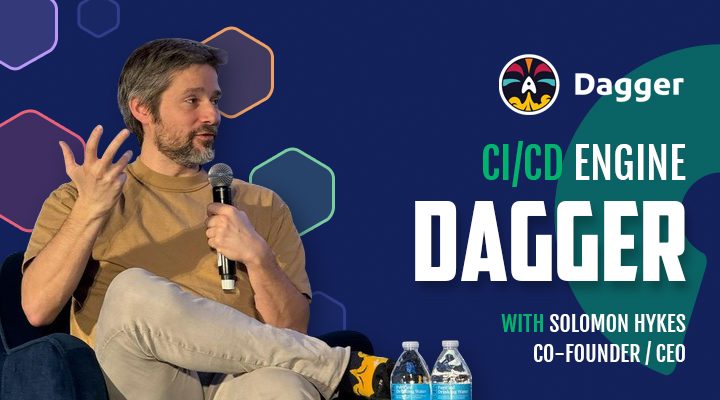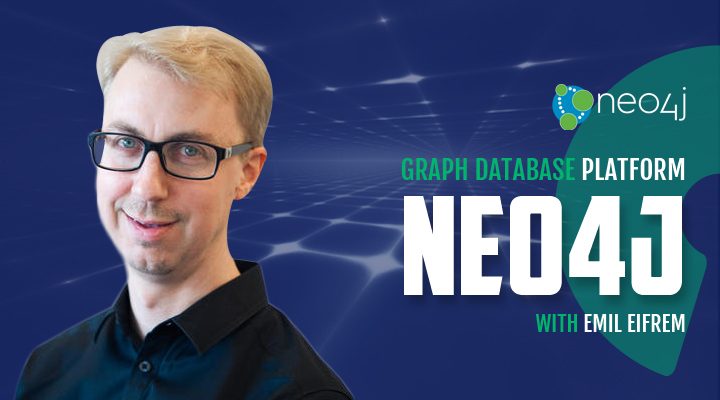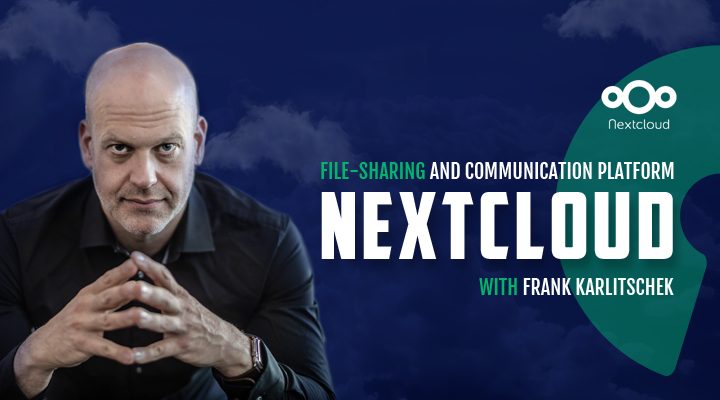
Episode 59 – Igor Farinic, Evolveum: Open -Source Software Vendor in the Identity Management and Governance Space
Podcast: Play in new window | Download
Subscribe: RSS
Intro
Michael Schwartz: Hello and welcome to Open Source Underdogs episode 59, with guest Igor Farinic, Co-founder and CEO of Evolveum. For those of you who don’t know Evolveum, it’s a European company based in Slovakia that specializes in Identity Management and Governance. This kind of software is used by Enterprises to provision and manage users and their entitlements within the organization, which is of course critical for security. I’ve known Igor for many years. Right before the pandemic in March of 2020, I had dinner with him and his team during an industry conference.
And I was super impressed with their passion and dedication. And I know that this level of engagement comes only with a great leader who builds a strong culture and mission. So, while Evolveum might not be your typical Bay Area unicorn, I think there’s a lot we can learn from Igor and Evolveum. And it was a long overdue interview, so here we go. Igor, thank you so much for joining us today.
Igor Farinic: Thank you for having me, Mike.
What Is MidPoint?
Michael: For those in our audience who are not Identity gurus, what types of challenges does Evolveum MidPoint help themselves?
Igor: There are so many challenges in that digital Identity security space we are selling. For every vertical, it’s a different story. Most of the challenges are pretty common, so you have to connect your source of data, which is usually HR system. Then, you have to onboard your people, persons and transform them into digital identities, and then do something about those – do some application account and so on. That’s pretty common for everyone.
Origin
Michael: So, how did Evolveum get started?
Igor: The previous recession actually, we were out of a job, with Radovan. Radovan is fond of the co-founders. We were looking for new opportunities and we had to develop next-generation open-source Identity Management system, but after some time, the company have been on the product. And we were hit very hard. So, actually, we did not have many options left. After some time, we decided to continue developing the open-source code based at what’s already in place. And actually, we helped transformed that and rebranded it into MidPoint. It was natural for us to remain open-source.
Early Days
Michael: Getting the momentum, or like the starting velocity in something like that, is really hard. Did you have some lucky breaks or some initial customers that it really made it possible at the beginning?
Igor: We were very lucky actually. We had like two or three groundbreaking partners and customers that helped us a lot in the early days. Without them, we wouldn’t be here today. After two years, we ran out of our investment money because we were invested by friends and family, especially out of our own pockets. So, thanks to these partners and customers, we were very lucky to start getting first subscriptions money, we took off and, yeah, we are here today.
Market Segmentation
Michael: So, Identity is such a broad horizontal market, does Evolveum segment the market in any way? For example, by vertical market or use case?
Igor: We are building strong partnership network – that is our primary focus, and we are not segmenting directly, but some of our partners are focusing based on some geographical location, some are focusing on some verticals. And also, some of them on different deployment models. Some partners are building a new product or code product on top of MidPoint.
Customer Profile
Michael: Can you talk about the range, some of the vertical segments that you’re serving – what some of the customers look like?
Igor: I would say we can serve all the verticals. Our partners can serve all the verticals. But there’s segmentation, like in the United States we have very strongly academic deployments. And in Europe, there are more verticals that are covered, banking and financial institution, Academia and so on. And governments as well.
Sales Channels
Michael: How do you find customers at Evolveum? And what would you say are the most effective sales channels?
Igor: Our primary focus is, I would say, inbound marketing. We are trying to produce the best content we can. We are publishing everything for free. We are pure open-source software, so, we do various things in open domain, not only code, but also documentation, and all the content is open.
Monetization
Michael: So, let’s talk a little bit about monetization. What does Evolveum actually sell?
Igor: Primary subscription. Over the last two years, during the Covid, we have transformed 85-90% of our revenue subscriptions. And this is very good for us because it gives us much more opportunity to produce even more content and even more code thanks to the subscription.
Michael: I guess you’re talking about support subscriptions?
Igor: Yes. Support subscription.
Michael: Some people would say that it’s a challenge to scale that business model
because it’s so hard to find good people, and Identity is really a multidisciplinary set of skills – it takes a lot of time to train. What are some of the challenges you see with the support subscription model?
Igor: Yeah. Actually, the only challenge with a subscription model – you have to move forward and start providing value to the customers to get the subscription from them. And to get to that point, you have to deploy the product. We are happy to have so many partners that actually are doing the implementation work for us. As I already mentioned, we have now almost 90% of the revenue subscription, so we are not doing implementation work. Almost no implementation work anymore. Even older subscriptions are thanks to our partners because they are deploying the product for the customers. And we have decided that we have pre-recorded all our trainings and are providing this trainings to our partners for free to improve the knowledge and speed up the process for implementation projects for the customers.
Open Core?
Michael: Have you ever been tempted, or have you ever discussed any ideas to move to open core, to add some extra bells and whistles in a commercial product?
Igor: Not, not really – we have also made a public pledge to stay open. There were some events in the Identity space or there’s some products that started as open-source and they are moving to goal source. That was the time when we have made this public pledge. And actually, I’m also listening to some of your podcasts as well. These are great for inspiration. And I remember there were some previous that some of the products or the other way around all being open-core and starting to open-source everything.
And actually this is the same situation here: to keep different processes or infrastructure in the company. It’s very complex. It’s asking from us to do everything in public space. It’s much cheaper but simple, and so on.
Cloud?
Michael: What about in the Cloud? You know, the other two big business models that we see most commonly are Open Core and Cloud. And I know at Gluu, I would say, every other year, we had a conversation about a Cloud version of Gluu, but what about Evolveum? You mentioned some of your partners are launching Cloud services. But have you considered launching a Cloud-hosted version?
Igor: No. We are having a very close communication with our partners. We are doing a lot of partners webinars. And we have decided that we will improve the MidPoint, that it will be Cloud-ready. And the partners will take over and they will do the operation of the code version of MidPoint. So, we are somewhere in the middle right now – it’s already code-friendly, very code-friendly. It just needs to focus on their long-run upgrades, updates and so on. So, this is to be a result interest in the next LTS version of MidPoint.
Community
Michael: So, building the community is always a challenge in open-source ecosystems. And I’m wondering, are you seeing any contributions from the communities? And if so, in what areas?
Igor: From the early days of Evolveum, community was very important to us and remains very important. No one is contributing to the core of the MidPoint or codebase, but that’s perfectly fine, because we helped many contributions that are outside of the community core. Like, for example, the community is developing connectors. There are so many connectors out there that are open-source. And I’ve been only able to develop community that is making MidPoint as a platform very strong.
We held translation to 18 different worldwide languages, which is great. We are using Transifex platform to coordinate the activity, and most of the translations are up-to-date with each release and 100% translated. So, that’s great. We are saving a huge ton of money on our own translations here.
I would say also the community management is pretty active. Community managements are our best effort channel for us. Now we are trying to have a community that is not only asking questions but actually helping. And we are motivating our partners to help the community. So, that’s very important for us. We have also written and distributed our own MidPoint Identity Management and Governance. And we have also translated this material and people are contributing improvements, I mean language and so on, to the book as well.
For us, even the subscribers are the community because they are primary contributing the money that is paying our builds. And thanks to them, we can build even better products.
Translation
Michael: Just for my own curiosity, I have a question about the language translation – how deep does it go? Are we talking about not just the interface but also the logs and the documentation? And you mentioned the book – are there any places where the translation doesn’t go?
Igor: All user interface. So, it’s not only end-user facing interface but also administrative interface. There are several thousands of keyboards that are being translated. Thankfully, everyone is happy with the documentation in English that we are providing. So, this is not being translated just for the book. The book was translated to a few languages.
Team
Michael: Okay. I’m curious about how you build the team. What’s the geographic distribution sort of the team at Evolveum? And how do you find people?
Igor: We have many challenges over the years to actually build strong team, but now we are very happy with what we have inside the company. And yeah, there are many, many challenges, but what we are focusing right now on, internally we are using Slovakian language and our market is Czechoslovakia – Czech and Slovakian people.
Internally discussing, if we actually change that inside the company and start
hiring in other geographical locations. But for the time being, we have like 26 people working for us in the company right now. And we are preparing for the next round of hiring. And we will see how it goes. If we start hitting challenges in our market, we are ready to transform and start hiring more internationally.
Competitive Threats / Future?
Michael: What do you think are the competitive threats to Evolveum? Is there anything that keeps you up at night?
Igor: Actually, I have a pretty good sleep. I am happy wherever we are right now. Yeah, there are always challenges that we, as a company, would like to start resolving. Because we help resolve the situation, we have a very stable platform, actually provisioning and connectors are stable. So, we are able to do the basic job, we are also in the Governance.
We can do certifications, we can help get visibility of data, people have access, where and why. And now, we are actually opening new streams – it’s not only Cloud on one front. On the other front, we are experimenting with recommenders for various situations. Then, we also started experimenting with machine learning and so long to bring much more benefit to the community.
Advice For Entrepreneurs
Michael: I think we’re sort of coming to the end. And one question that I ask all my guests is, if they have any advice for new founders. I guess I’d like to add to that, do you think that now is a good time to start an open-source enterprise software company? And if so, what advice would you give to that founder?
Igor: I would say it’s a great time. I have seen a lot of analysis where open-source products are taking over and actually having a great time. I will tell you it’s a great time to start open-source business. And for us, what was very helping in the past, it was pretty common that everyone was expecting open-source codes for free. But we have very strong boundary with our software – you can download it, you can do whatever you want with the software if you follow the license, which is pretty, I would say, great because it’s Apache license and UPL license. But if you start approaching gaps and would like our assistance, we are very strict that we are not doing services for free.
It was very hard in the early days, but over the time when we became a recognized platform, it improved so much that people are not expecting that anymore. And that’s great.
I would also say that if you compare open source to commercial products, then open source is not free. The expenses for open source are different, like for example, you don’t have to pay for the licenses but you still need to find people to pay to do the implementation and deployment. Someone has to do that operation for the solution. And you still shall pay the support. Personally, I myself wouldn’t go into a production where I’m managing maybe 1,000 or 2,000 Identities and actually don’t pay support contracts. Identity is so important for the business that I wouldn’t use that.
Close
Michael: Well, I’m sorry we didn’t have this conversation earlier because we’ve known each other for so long. But thank you so much for being on the show, Igor. And I’m wishing you the best of luck as always.
Igor: Thank you, Mike.
Credits
Michael: Thanks to the Evolveum and Gluu teams for helping me to pull this episode together. Cool graphics from Kamal Bhattacharjee. Music from Broke for Free, Chris Zabriskie and Lee Rosevere. If you liked this episode, don’t forget to tell your friends.
And if you’re interested in open source, especially if you’re based in Europe, you should check out the state of Open Source Conference in London, February 7th, 2023. I’ll be there, and I’m even recording a podcast live at the event.
So, until next, time thanks for listening!




